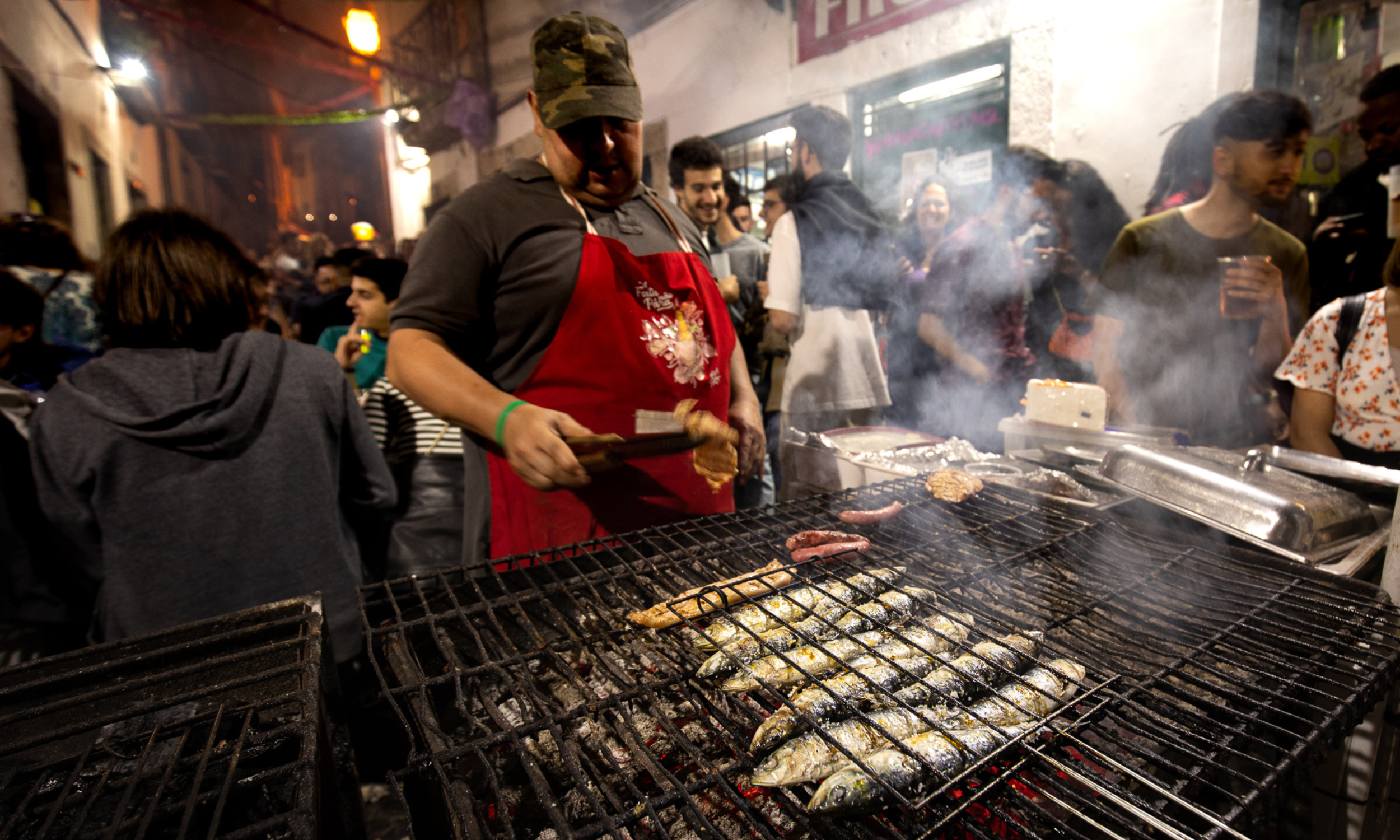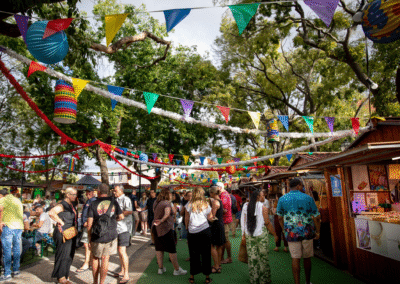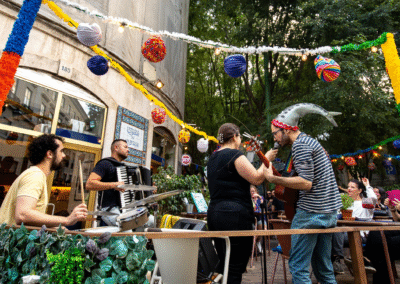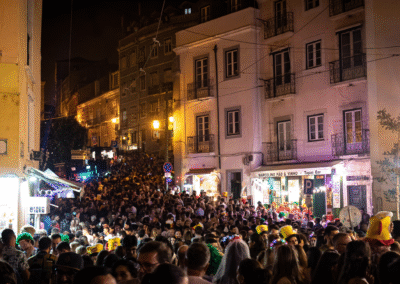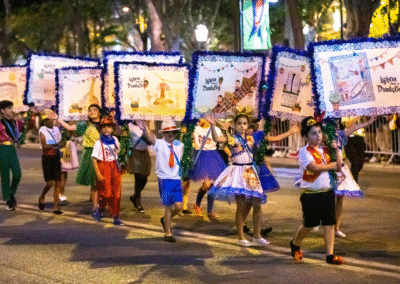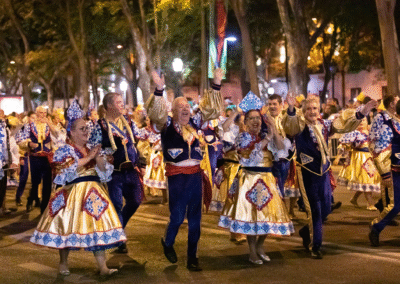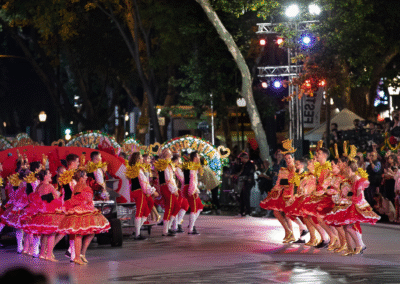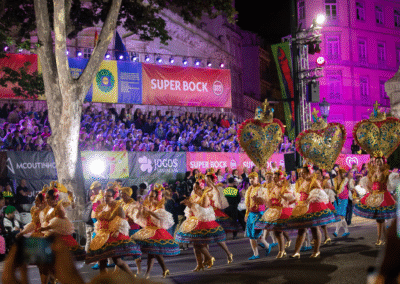There’s no better way to experience the culture of Portugal other than attending the Santo António Festival!
The Santo António Festival, also known as the Festas de Lisboa (Festivals of Lisbon), is one of the most popular and lively annual events in Lisbon, attracting both locals and tourists of all ages. It combines religious, cultural, and traditional elements with a festive atmosphere through street parties, music, dance, food, and various traditional customs.
The city of Lisbon throws a party every year in honor of its patron saint, Saint Antony, which begins on the evening of the 12th of June and goes on until the early hours of the 13th, the eve of Saint Anthony’s Day.
St. Anthony, born to a wealthy Lisbon family, was a 12th-century Catholic priest and friar. He’s known as the patron saint of lost things, love, and marriage. During one of his expeditions, he was having trouble converting the people, so he practiced his sermon by preaching to the fish; sardines, to be specific. Legend says that the fish listened to his sermon and he took it as a sign of God.
One of the highlights of the festival is the Marchas Populares, which are parades featuring different neighborhood associations (marchas) dressed in colorful costumes. Each marcha represents a specific neighborhood of Lisbon and competes for the best performance and display of their unique traditions and folklore. The participants dance and sing their way through the streets, accompanied by live music and enthusiastic crowds.
June also marks the beginning of “sardine season” and is the perfect time to enjoy sardines, the Portuguese way — grilled and served whole on a thick slice of sweet bread!
Sardinhas, or sardines, hold a special place in Portuguese culture. They are an iconic and beloved part of Portuguese cuisine, especially during the summer months when grilled sardines are a staple at festivals and outdoor gatherings.
The sardines are typically marinated with sea salt, lemon juice, and sometimes a bit of olive oil before being cooked over an open flame. They are often served with roasted peppers, boiled potatoes, and a slice of bread.
